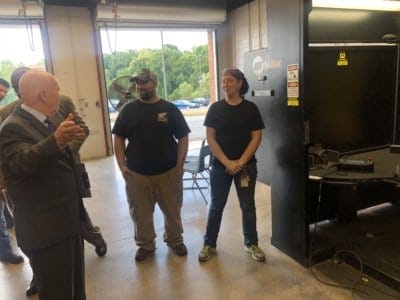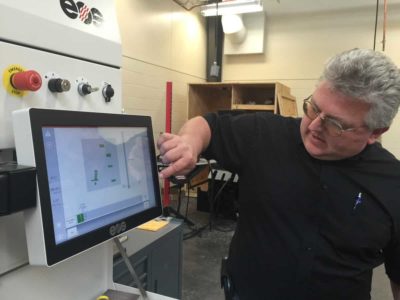

The new “Hope and Opportunity Scholarship” will give many local high school graduates a free ticket to Forsyth Technical Community College and a better future.
It’s a bold plan that will change lives and help end the cycle of poverty for families. Congratulations to BB&T for providing the funding that will allow low-income students to earn affordable associate degrees or career skills that are vital in today’s job market.
Forsyth Tech joins more than a dozen community colleges around the state that guarantee a tuition-free scholarship to qualifying students, as well as many other colleges that offer substantial grants to local students who want to jump start or complete their education.
These innovative programs provide students with a vision of their future, helping them understand that college is possible.
Giving people hope is critical at a time when higher education can seem out of reach for too many.
Fifty-seven percent of millennials under 30 say student debt is a major problem in the United States, according to Harvard University’s Institute of Politics. And that itself is a major problem.
Concern about the rising level of student borrowing in this country – currently $1.5 trillion – has the potential to discourage students from pursuing higher education. But that is exactly the wrong move in a competitive economy that increasingly requires education beyond high school.
Students need to know that they have affordable options.
North Carolina’s 58 community colleges provide a low-cost path to an immediate job or transfer to a four-year university. In 2019-20, community colleges in this state have the third lowest levels of tuition and fees in the country, according to the college board.
Tuition is just $76 per credit hour at North Carolina’s community colleges, or about $2,400 a year for full-time students. Many of our students attend classes part-time while working, making the cost more manageable.
Students aiming to earn a four-year degree can slash their total college bill by attending a community college for the first two years. At the same time, they can benefit from the small classes and personal attention of our faculty while acclimating to college work.
Across the state, community colleges and four-year universities have signed cooperative admission agreements that make the transfer process seamless. A student can live at home the first two years, attending a local community college and saving money – all the while, knowing that there is a seat waiting at the university of his or her choice.
Those who want to move quickly to a career can take short-term courses that lead to diplomas, certificates or other credentials that give them a leg up in the search for a well-paying job. The cost there is even less, and our apprenticeship program allows many students to get the skills they need, earning while learning on the job.
Eligible high school graduates from Winston-Salem and Forsyth County who take advantage of the Hope and Opportunity Scholarship have an edge. Once they finish their education at Forsyth Tech, they can start a career without the heavy debt burden that can delay them from buying a car, purchasing a home, or starting a family. If they decide to move forward toward a bachelor’s degree, they will come out with dramatically less debt than if they had not started at a community college.
In 2018-19, more than 48,500 people graduated from a community college in North Carolina, earning more than 67,000 degrees and workforce credentials. We serve 700,000 students a year, from the mountains to the coast.
Whatever path students choose, community colleges are the undisputed low-cost option. Thanks to the generous support of the legislature, taxpayers and our business partners, community colleges are North Carolina’s hidden jewel and the key to economic mobility for so many.




